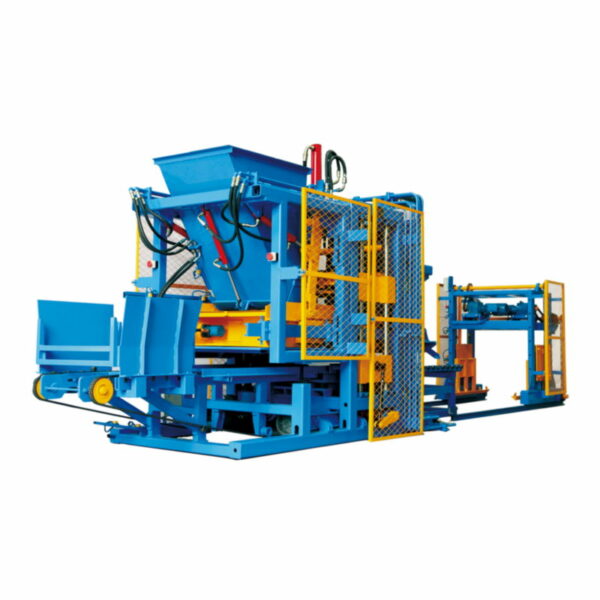While block making machines offer numerous advantages in producing various types of blocks for construction purposes, they also have certain limitations:
- Material Constraints: Block making machines are typically designed to work with specific types of materials such as concrete, cement, fly ash, or clay. Using other materials may require modifications to the machine or may not be feasible.
- Size and Shape Limitations: Some block making machines may have limitations on the size and shape of blocks they can produce. Custom shapes or sizes may require specialized equipment or additional customization.
- Production Capacity: While block making machines can produce blocks efficiently, their production capacity may be limited compared to larger-scale manufacturing methods. High-volume production may require multiple machines or longer production times.
- Energy Consumption: Block making machines, especially those that are not optimized for energy efficiency, may consume significant amounts of energy during operation. This can result in higher operating costs and environmental impacts.
- Maintenance Requirements: Like any machinery, block making machines require regular maintenance to ensure optimal performance and longevity. Failure to maintain the machine properly can lead to downtime and reduced productivity.
- Initial Investment: Purchasing a block making machine can involve a significant initial investment, blocks making machine especially for high-quality or specialized equipment. This initial cost may be a barrier for small businesses or individuals.
- Skill Requirement: Operating a block making machine effectively requires training and skill. Improper operation can lead to defects in the blocks or damage to the machine.
- Transportation and Installation: Block making machines, especially larger models, can be heavy and require specialized transportation and installation. This can add logistical challenges and costs, especially for remote or inaccessible locations.
- Environmental Impact: The production process of blocks, including the operation of block making machines, can have environmental impacts such as energy consumption, emissions, and waste generation. Efforts should be made to minimize these impacts through efficient operation and waste management practices.
- Regulatory Compliance: Depending on the location and type of operation, block making machines may be subject to regulatory requirements and standards related to safety, emissions, noise, and waste management. Compliance with these regulations adds complexity and potential costs to the operation.
Despite these limitations, block making machines remain valuable tools in the construction industry for efficiently producing high-quality blocks for various applications. Understanding these limitations and addressing them appropriately can help maximize the benefits of using block making machines while minimizing potential drawbacks.
How durable are the blocks produced by a block making machine?
The durability of blocks produced by a block making machine depends on several factors, including the quality of materials used, the design and construction of the block making machine, the curing process, and the handling and installation practices.
Here are some key factors that contribute to the durability of blocks:
- Material Quality: The quality of the raw materials used in block production significantly affects the durability of the blocks. High-quality aggregates, cement, and additives result in stronger and more durable blocks. Contaminants or impurities in the materials can weaken the blocks and reduce their lifespan.
- Mix Design: The proportion of materials and the mix design used in block production play a crucial role in determining the strength and durability of the blocks. Properly formulated mixes with the right balance of aggregates, cement, water, and additives can enhance the durability of the blocks.
- Compaction: Proper compaction of the block mix during the molding process is essential for achieving dense and durable blocks. Block making machines should provide adequate compaction force to ensure that the mix is properly compacted and free of voids or air pockets.
- Curing Process: The curing process is critical for the development of strength and durability in concrete blocks. Proper curing involves maintaining optimal temperature and moisture conditions for a specified period after the blocks are molded. Curing methods such as steam curing, water curing, or air curing can influence the durability of the blocks.
- Vibration: Some block making machines use vibration to enhance compaction and density during block production. block making machine Proper vibration techniques can help improve the strength and durability of the blocks by reducing voids and improving bond between particles.
- Quality Control: Regular quality control measures, including testing of raw materials, mix designs, and finished blocks, help ensure that blocks meet specified standards for strength and durability. Quality control processes can identify any issues early on and prevent the production of substandard blocks.
- Handling and Installation: Proper handling and installation practices are essential for preserving the durability of blocks. Care should be taken to prevent damage during transport, storage, and installation. Blocks should be handled carefully to avoid chipping, cracking, or spalling.
- Environmental Factors: Environmental factors such as exposure to freeze-thaw cycles, moisture ingress, chemical exposure, and abrasion can affect the durability of blocks over time. Proper design considerations and protective measures can mitigate these effects and enhance the longevity of the blocks.
Overall, blocks produced by a well-designed and properly operated block making machine, using high-quality materials and following best practices in production, curing, handling, and installation, can be highly durable and long-lasting. Regular maintenance and quality control measures further ensure the consistent production of durable blocks for various construction applications.
